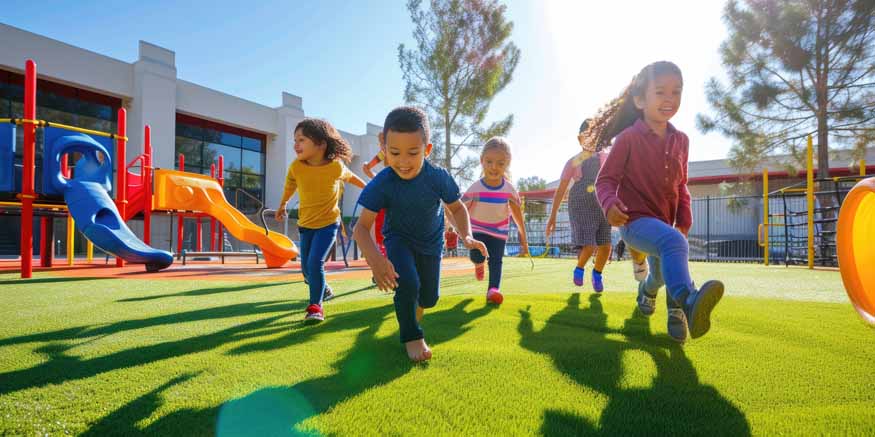Self-image is how we perceive ourselves in our minds. What strengths and weaknesses, talents or shortcomings do we see in ourselves? A significant portion of this self-image is based on our perception of how others see us. Our self-image has a strong bearing on our self-confidence, our self-esteem and a significant influence on our behaviour. Children are especially susceptible to self-image issues while they are growing up. Teenagers going through hormonal changes during adolescence go through significant physical and mental changes which brings their self-image into question.
As per studies, children tend to face self-image issues based on their body shape, appearance, looks, weight, and even skin conditions such as acne, hair (balding), and breasts. These self-image issues typically surface when children are poked fun at by strangers, friends, classmates, and even their relatives. Media influences popular perceptions of beauty and good looks. Children who do not match up to those stereotypes develop self-image issues. They start comparing themselves with their peers in school which further damages their self-image. Most parents, as per a study, have reported that their child suffers from self-image issues.
Children who suffer from such self-image issues typically demonstrate the following symptoms.
- Becoming introverts and shy
- Stop enjoying social interactions
- Decreased mental health
- Decreased Emotional well being
- Eating disorders
- Depression
- Lack of self-confidence
- Low self-esteem
- Inferiority complex
It is amply clear from the above that having a good self-image is of utmost importance in children growing up.
Let’s look at five ways to nurture a good self-image in your kids:
Lead by example
Children try to mirror the behaviour of their parents and learn from them. Their first feedback on their self-image usually comes from how their parents see them. If parents show an inclination towards praising someone for good looks or mocking someone for being overweight, this could feed into the psychological stereotypes of the child and further damage their self-image. Show them with your thoughts, words, and actions that looks and appearances alone do not make a human being. There are other virtues such as honesty, integrity, empathy, and sincerity which are of more importance to students than how they look. Teach them self-love by practising it yourself. Tell them how you are imperfect yourself but still love yourself for who you are. Treat wins and losses the same. Do not be overly critical as it might feed into their already diminishing self-image.
Embrace Uniqueness
The paradigm of self-love can be hinged on our in-born individuality. Each individual is born unique, in mind, body and soul. There are no two human beings who are alike. Even identical twins born in a family might have different likes and dislikes, different ways of thinking and looking at the world, and different strengths, weaknesses, and talents. This uniqueness of mind, body and soul is our individuality which sets us apart from everyone else. Encourage children to look at their uniqueness of mind and soul, beyond just bodily appearance. Help children to identify and accept their uniqueness and individuality.
Build self-pride
Teachers and parents must help children get in touch with their uniqueness, and their individuality. Help them identify all the ways they are special. Help them explore their strengths and talents. Traverse this journey with them to help them build pride in themselves. Simple exercises such as writing down five things you are proud of yourself and repeating those things first thing every morning in front of the mirror could go a long way in building your self-pride. Facing failure or being judged is usually something that damages their self-pride the most. Teach them the importance of competing. The importance of showing up without caring about what others think of them or without thinking of the outcome.
Deemphasize Looks
If you feel your child is suffering from self-image issues relating to looks, then consciously deemphasize looks in all your conversations and actions. Examples such as those of Albert Einstein could be cited to reduce the emphasis on looks and shift focus to other more important values. Find ways to identify values, apart from just looks, in people around you which are worth admiring. Tell them stories of great achievers whose virtues did not emerge from how they looked, but from what they did. Encourage your children to identify their idols based on strength of character, not just on appearance. Children tend to idolise movie stars and rock stars. Even those idols, highlight to them that they are where they are not just because of looks but more because of other virtues that they have such as hard work, sincerity, and perseverance. Tell them the story of their struggles and how they achieved success. Knowing more about their idols will deemphasize the importance of looks in their minds.
Question popular stereotypes
Popular media is one of the biggest culprits when it comes to feeding the looks stereotypes for children. For example, all the ‘heroes’ and ‘heroines’ in our movies have to be extremely good-looking people. The not so good looking or obese actors are either villains or comedians. If you think of the popular comedians from our movies or TV serials, they would be either overweight or of a dark complexion. Movies and mass media exert a strong influence in forming such stereotypes in our society. How can we forget the much talked about fairness cream advertisements that for years fed us that only fair is lovely and worthy of marriage or any form of love? Teach your children to question these stereotypes. One simple way for example is to start admiring actors for their acting skills and not for their looks. There are ample examples of actors such as Om Puri, Naseeruddin Shah, and Nawazuddin Siddiqui who have broken this mould of good-looking actors.
At EuroSchool our teachers and our well-rounded curriculum help students identify their unique strengths which build a positive self-image, self-confidence, and high self-esteem.









